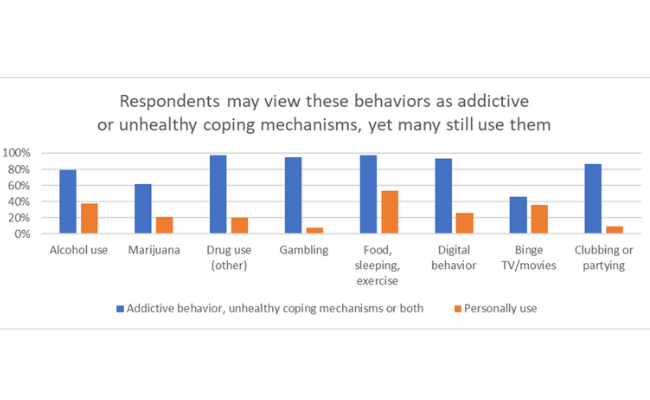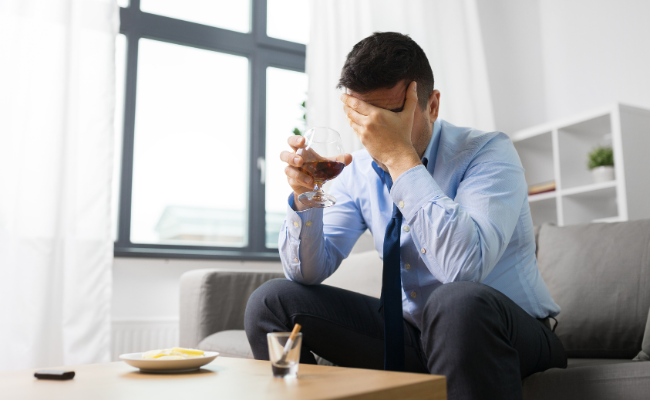77% of Americans Turn to Unhealthy Methods in Mental Health Crises
It is disheartening that a report shows 77% of Americans are resorting to unhealthy ways of dealing with mental health crises. From substance abuse to alcohol addiction, such behaviors can impact individuals and their loved ones in a big way.
Considering this alarming statistic, which unhealthy coping mechanism have you turned to? The issue of mental health is of absolute importance. It is vital to raise awareness of the effect of stress on our overall wellness.
Myriad Genetics conducted a study and found that over three-quarters(77%) of Americans engage in harmful coping mechanisms such as gambling, drug abuse, binge-watching TV shows and overuse of social media. Partying and sleeping too much or too little are also included.

Photo Credit: globenewswire.com
These coping methods give temporary relief but have long-term consequences. Mental health problems and addiction go hand-in-hand. Many individuals resort to harmful self-medications when they fail to seek a treatment that cures their anxiety and depression symptoms.
Why do people engage in unhealthy coping habits despite knowing the consequences?

In addition, the same group who participated in the survey still engages in these alarming habits. Another example is that 70% of people diagnosed with depression or anxiety slept either too little or too much to deal with their issues.
You may also like: Stressed Out? Study Shows Stress Is Contagious
Moreover, nearly 20% use marijuana and 40% consume alcohol to cope with their symptoms. Although almost everyone sees that excessive partying, gambling, and other coping methods are not solutions to mental health problems, nearly 10% of the respondents still immerse themselves in these activities.

Photo Credit: globenewswire.com
Addressing the issue of unhealthy coping habits
With the increasing rates of substance abuse, it is evident that the US is facing a mental health crisis. Other American problems that cause these mental crises are school shootings, feelings of isolation, and overly-priced healthcare.
Moreover, American children are reporting an increasing number of mental health issues. Almost 10% of children 17 years or younger have symptoms of depression and anxiety.
It is crucial to acknowledge the dangers of these unhealthy coping methods. Also, asking for help from experts to find the treatment that surely relieves anxiety and depression symptoms is the best way to heal.
While these coping mechanisms may give brief relief, they ultimately result in worse mental health. It is vital to address this crisis in the US and offer effective and accessible mental health care for all individuals.

